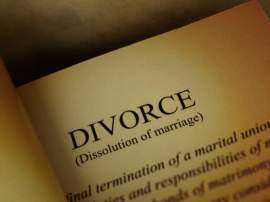
Divorce Process in South Carolina

Guide to the Divorce Process in South Carolina
If you are considering divorce in South Carolina, you may not know exactly where to begin finding out information. It can be hard to even formulate a question to divorce lawyers if you don't understand the divorce process in South Carolina. This guide will explain the various steps of the divorce process, and outline how you can go about obtaining a divorce judgment. After reading this guide, you will be better informed about the divorce process in South Carolina and more able to seek additional information or court forms to begin filing your divorce.
Complaint and Answer
The divorce process in South Carolina begins when one spouse (the “plaintiff spouse”) files a written complaint with the court. The complaint will be served officially to the other spouse (the “defendant spouse”), usually by a private process server or a sheriff's deputy at their home or place of employment.
After receiving the complaint, the defendant spouse will have time to file a written answer with the court. Both the complaint and answer will cost filing fees. Both documents will include the grounds for the divorce (the reason you are divorcing). The vast majority of divorces are no-fault. In the no-fault divorce process in South Carolina, you will need to be separated from your spouse for one year before you can file.
If you are alleging fault, you do not need to wait a year before filing. However, it can be much more difficult to prove fault, and this may make the divorce process in South Carolina drag out. Many couples find it significantly easier to simply file for no-fault divorce.
Default Divorce
Most of the time, spouses who are served with divorce papers respond to them promptly. However, in some cases, a spouse will think that refusing to answer a complaint will stop the divorce. This could not be further from the truth. The divorce process in South Carolina calls the result of this “divorce by default,” and it generally leads to the plaintiff spouse receiving whatever they asked the court for in the divorce.
Divorce by default also happens when one spouse is missing and cannot be found. If a divorce notice is published according to legal guidelines (you may wish to check with an attorney if you need to publish notice), and your spouse does not respond, you will be granted a divorce by default.
Settlement or Trial?
Most divorce suits do not end with a trial, but with a settlement instead. Settlements are a short-cut in the divorce process in South Carolina, saving both spouses time and money. A settlement is reached when both spouses can agree on all aspects of the divorce.
Trials, on the other hand, are quite expensive and often emotionally challenging for both spouses and their children. This final part of the divorce process in South Carolina is only used when all options for reaching a settlement have been exhausted. If your divorce goes to trial, your divorce will only be finalized after the trial has concluded.



















